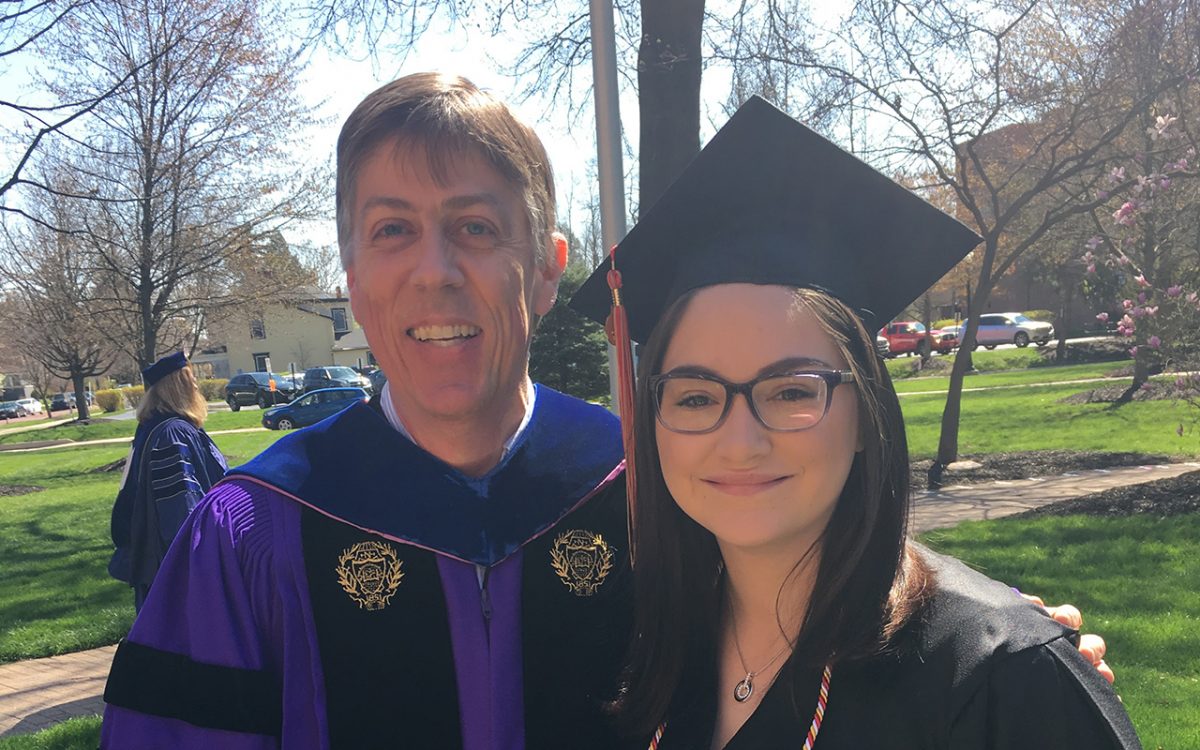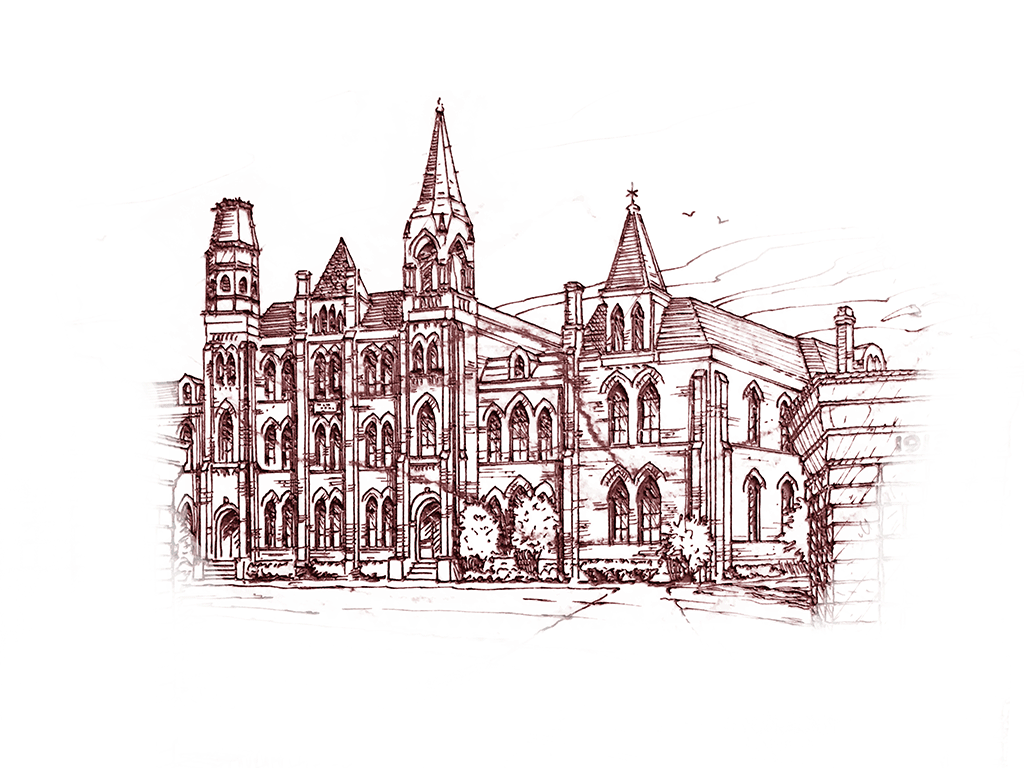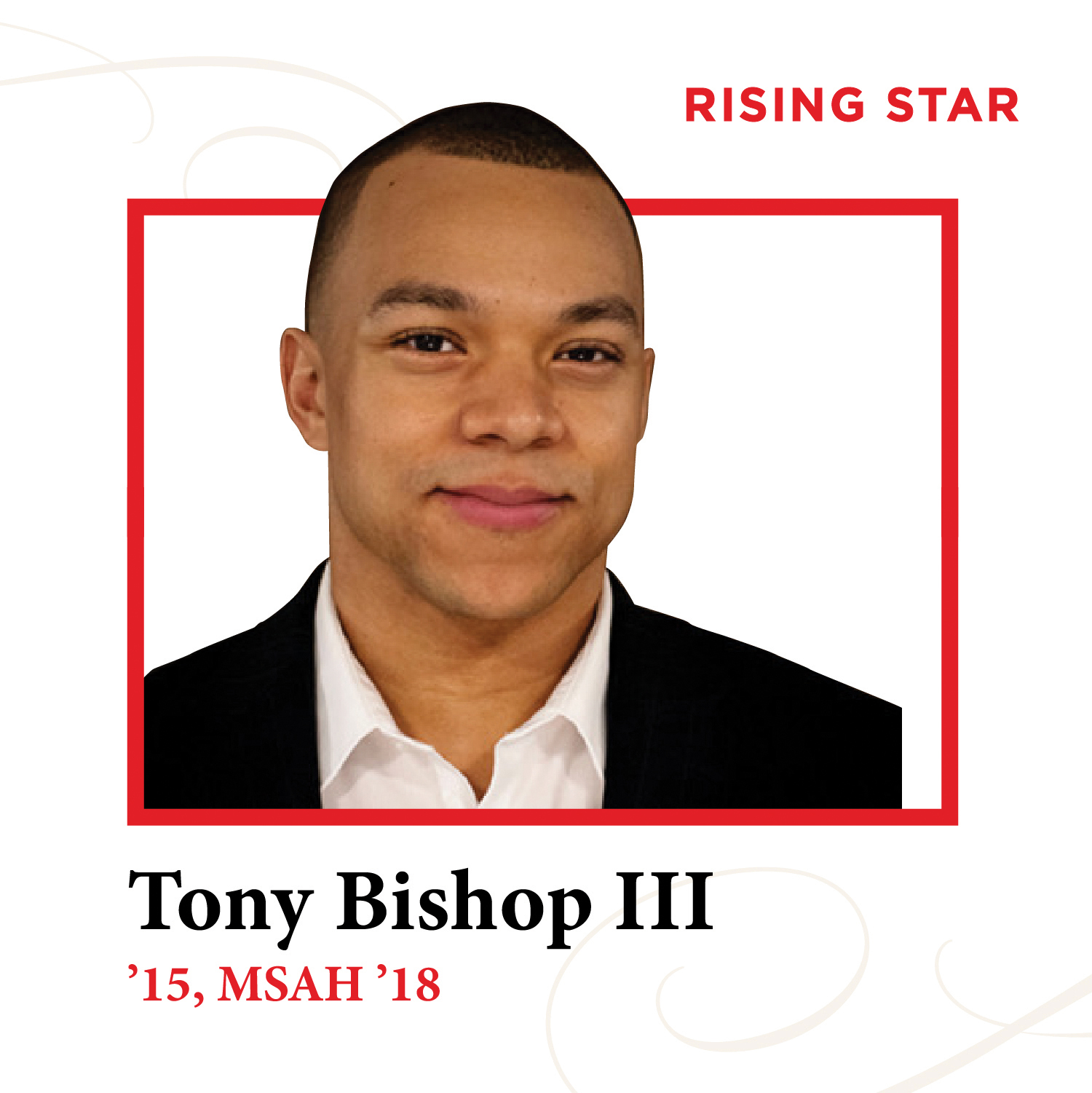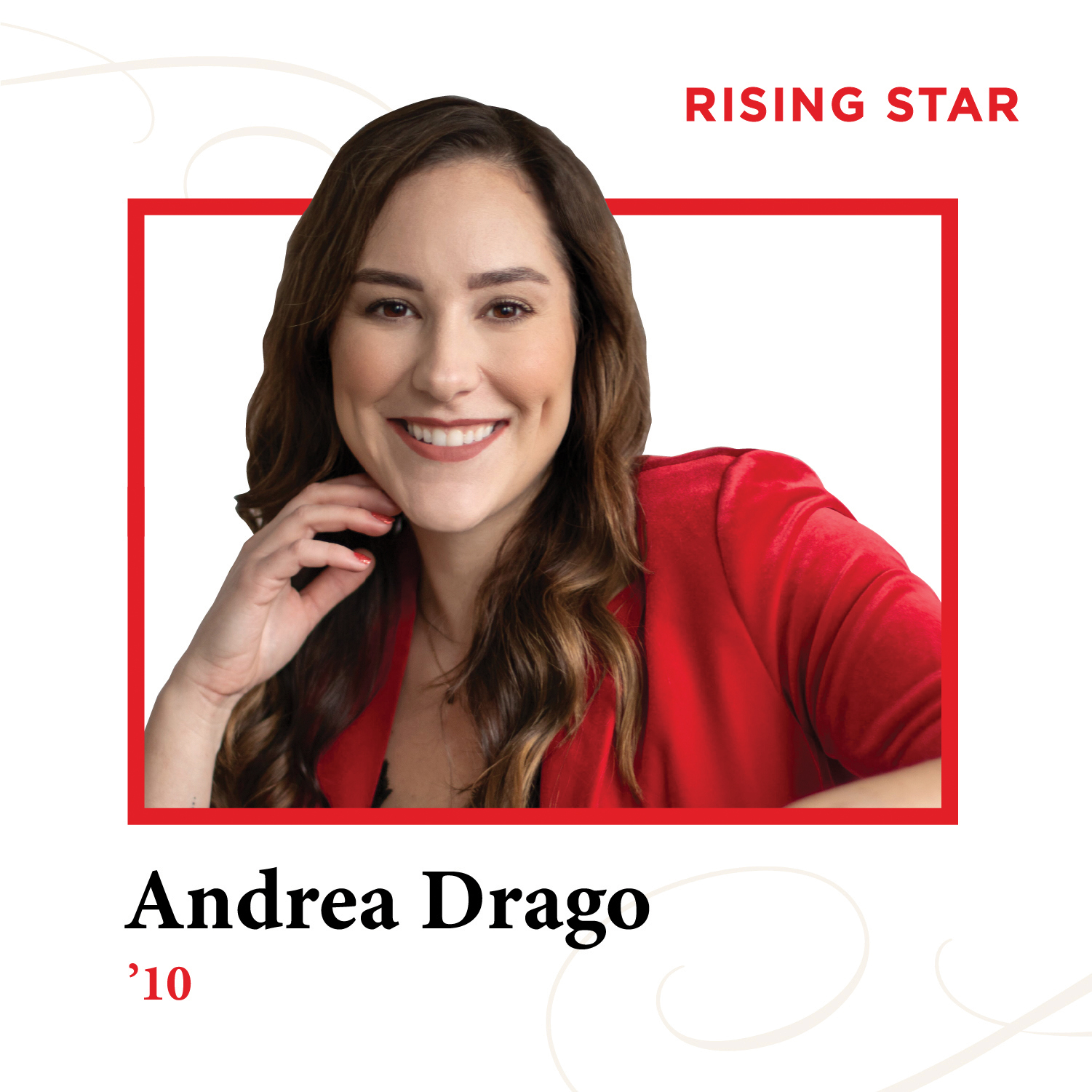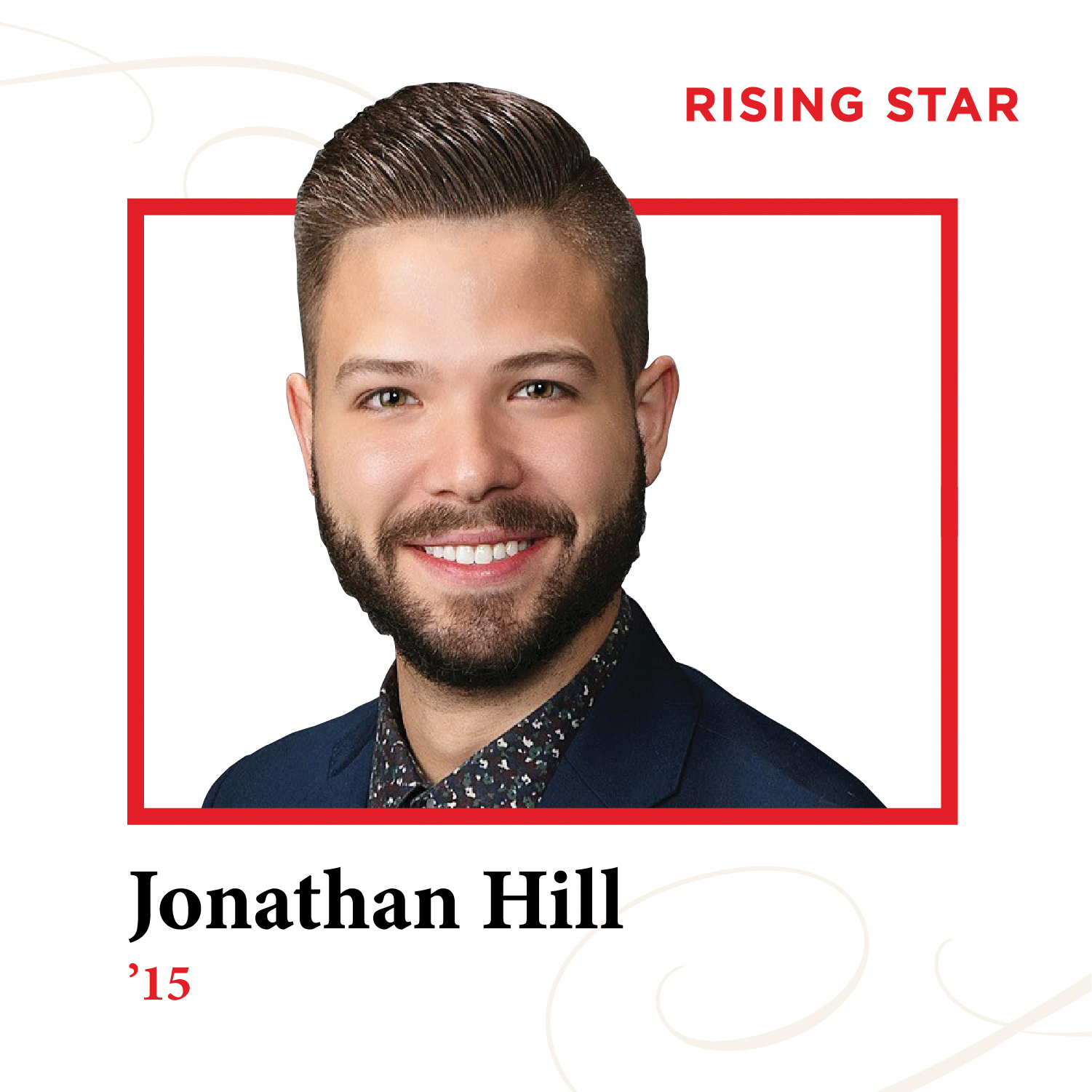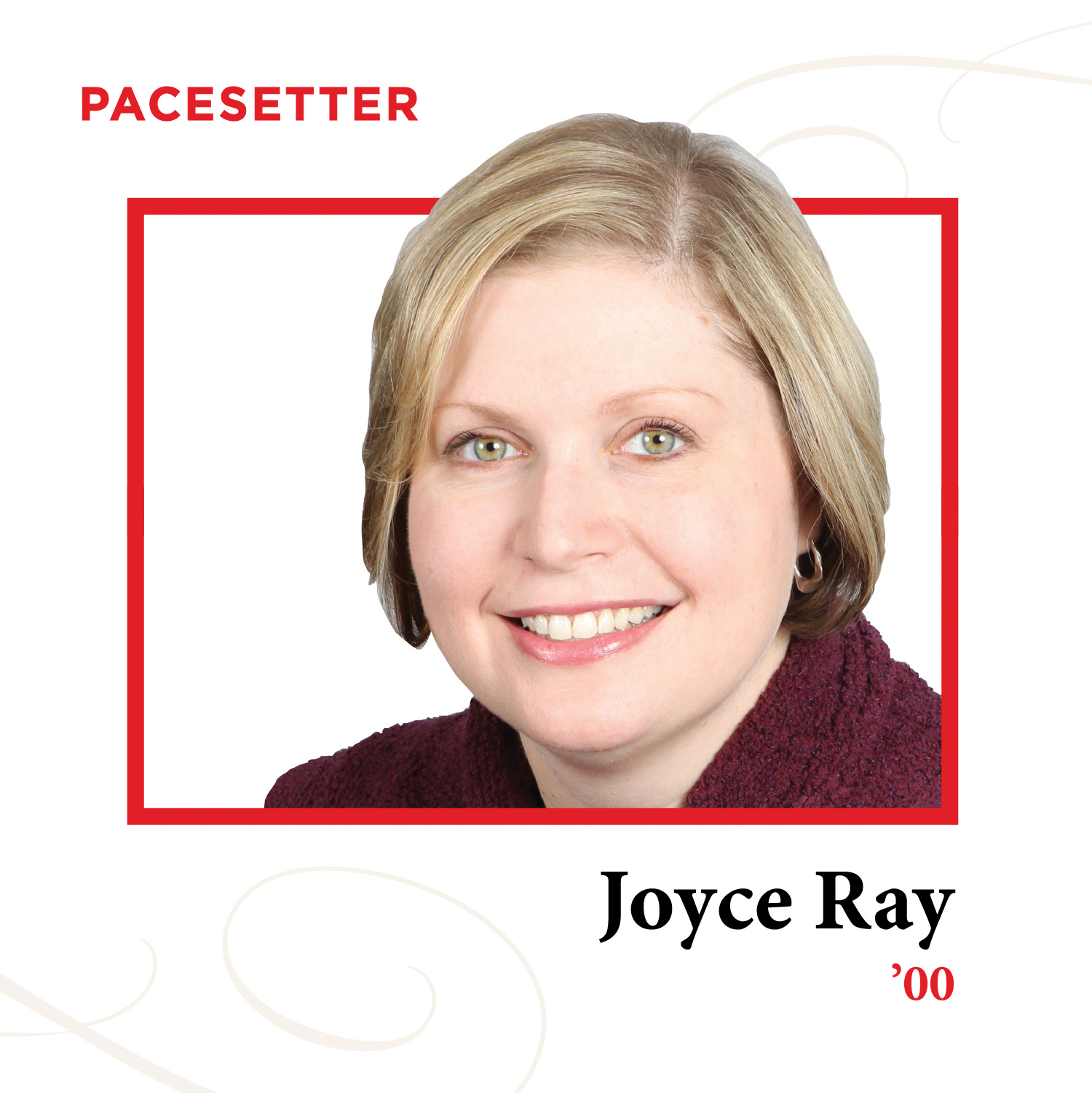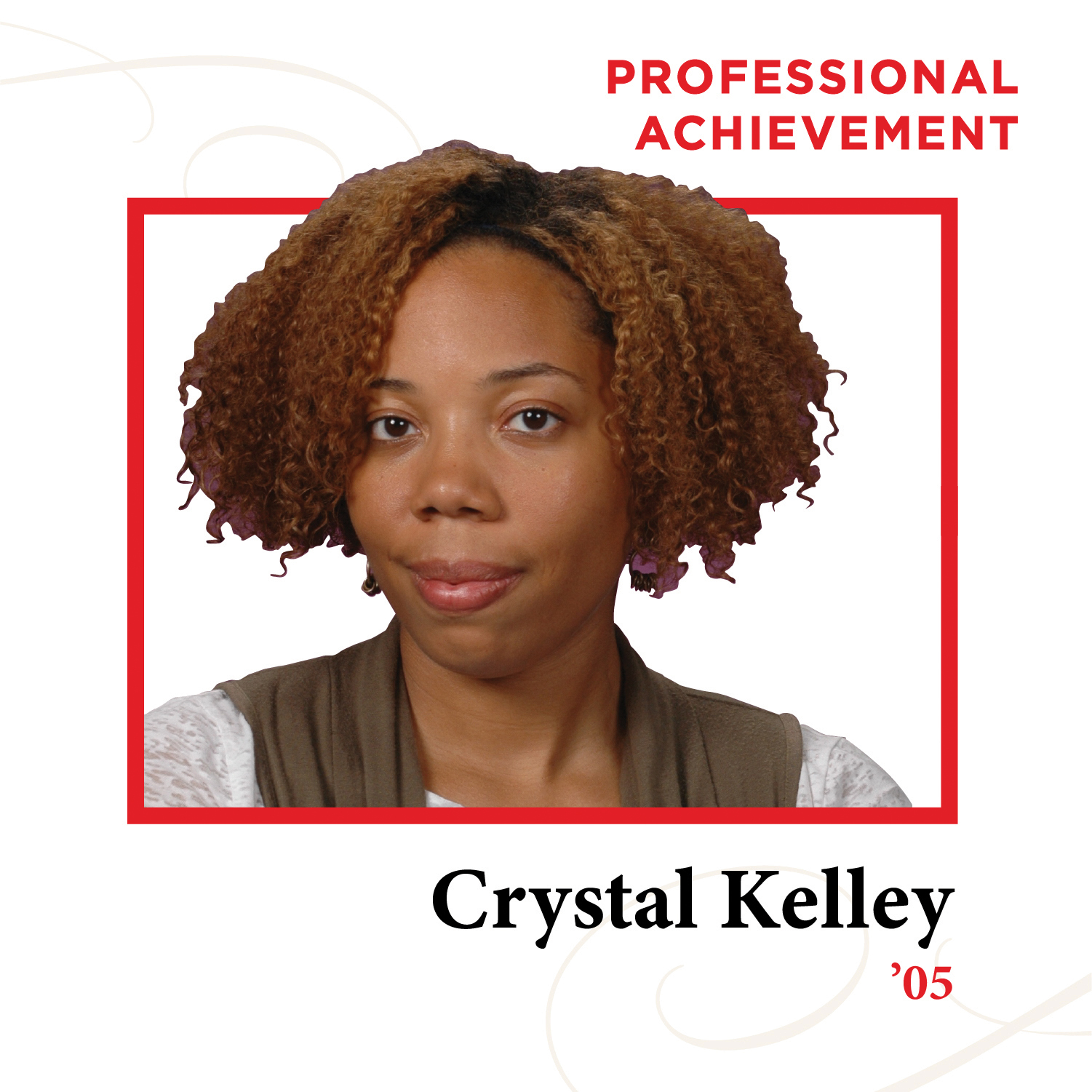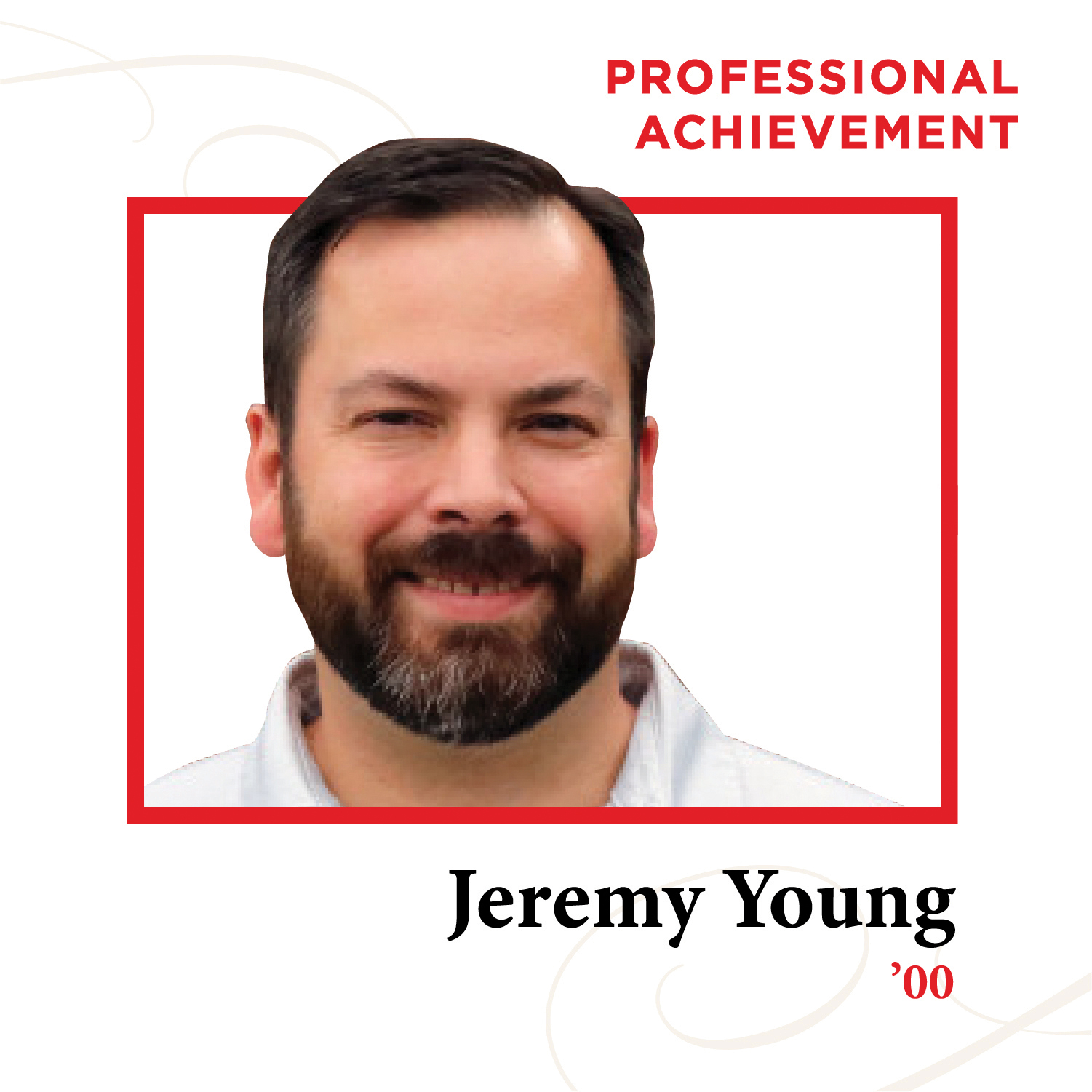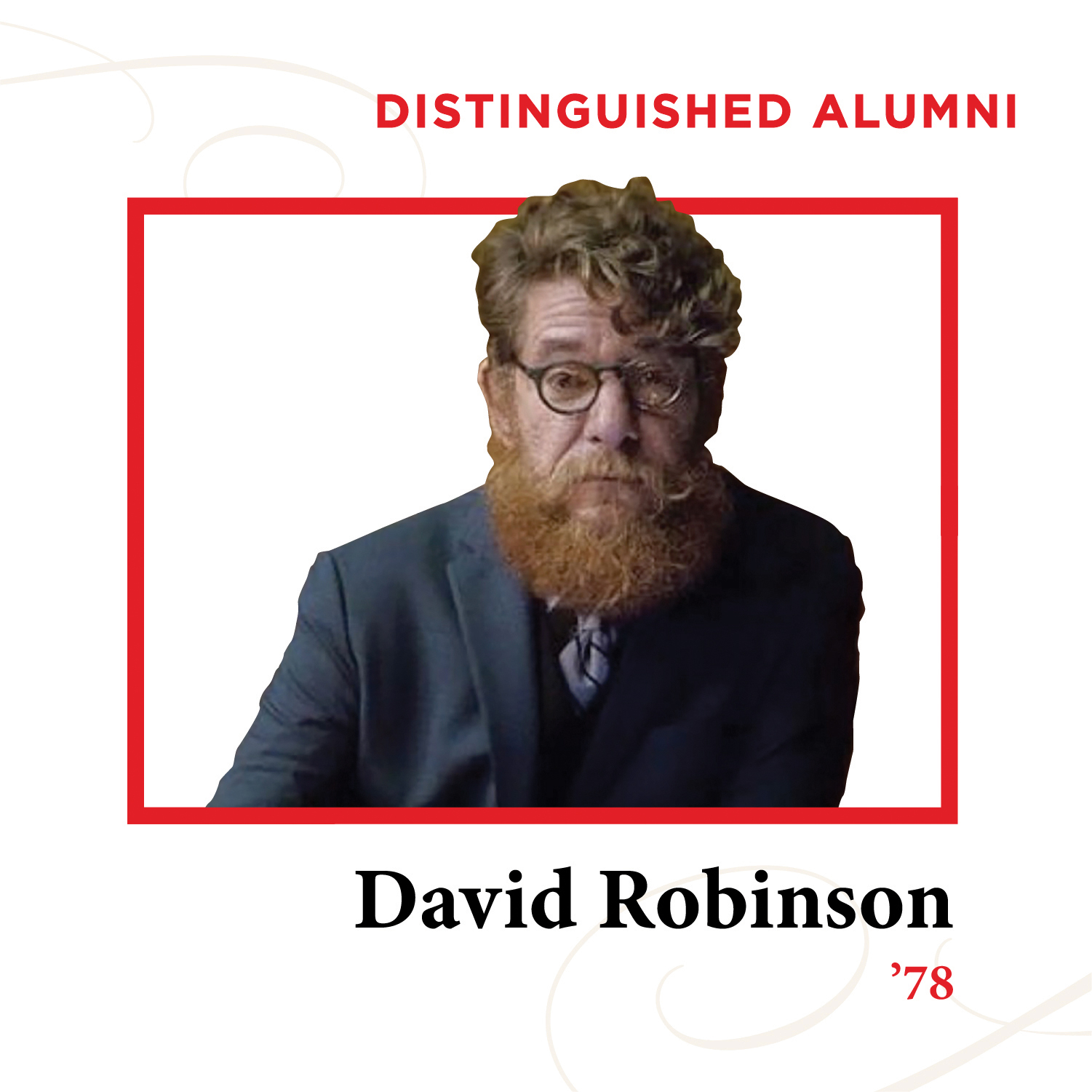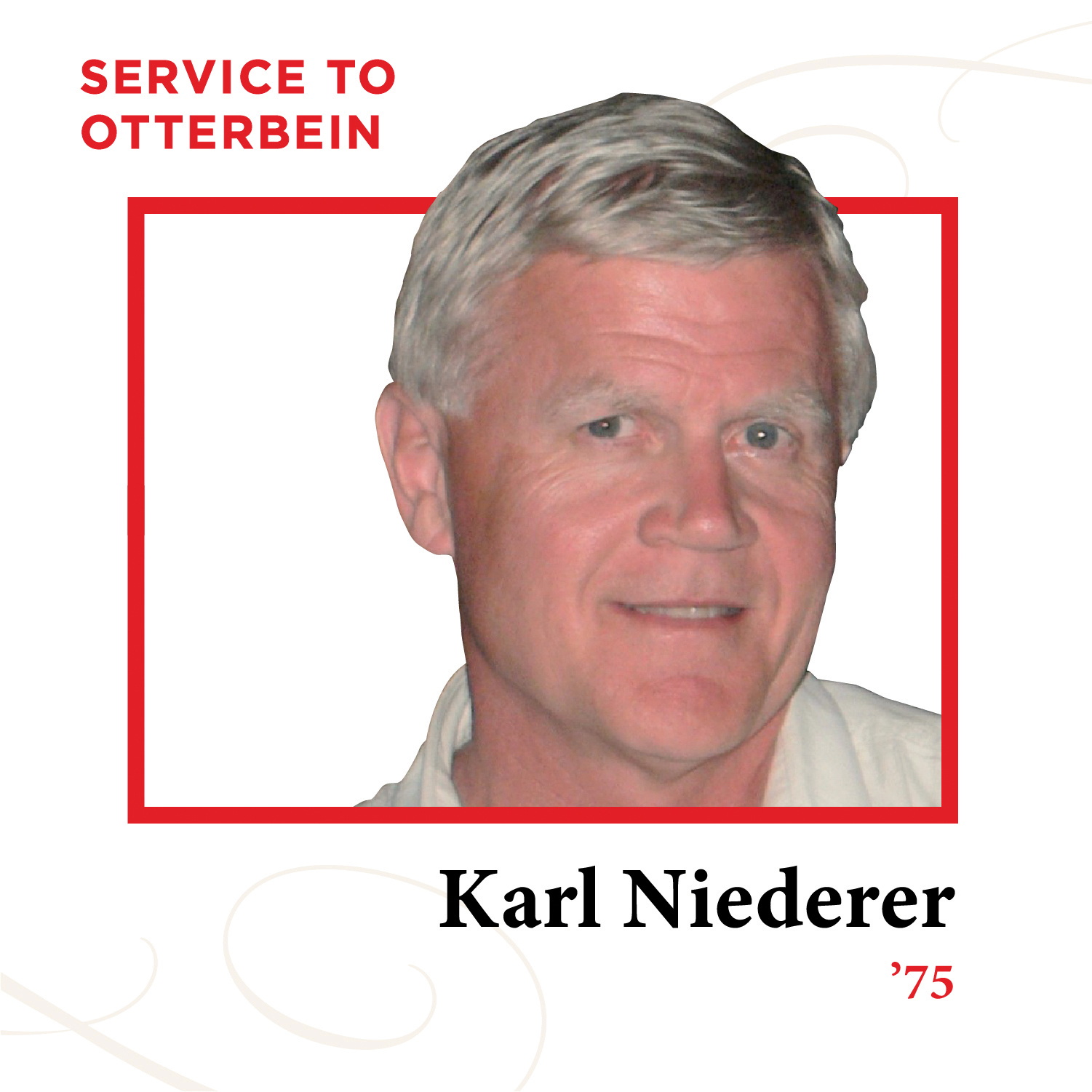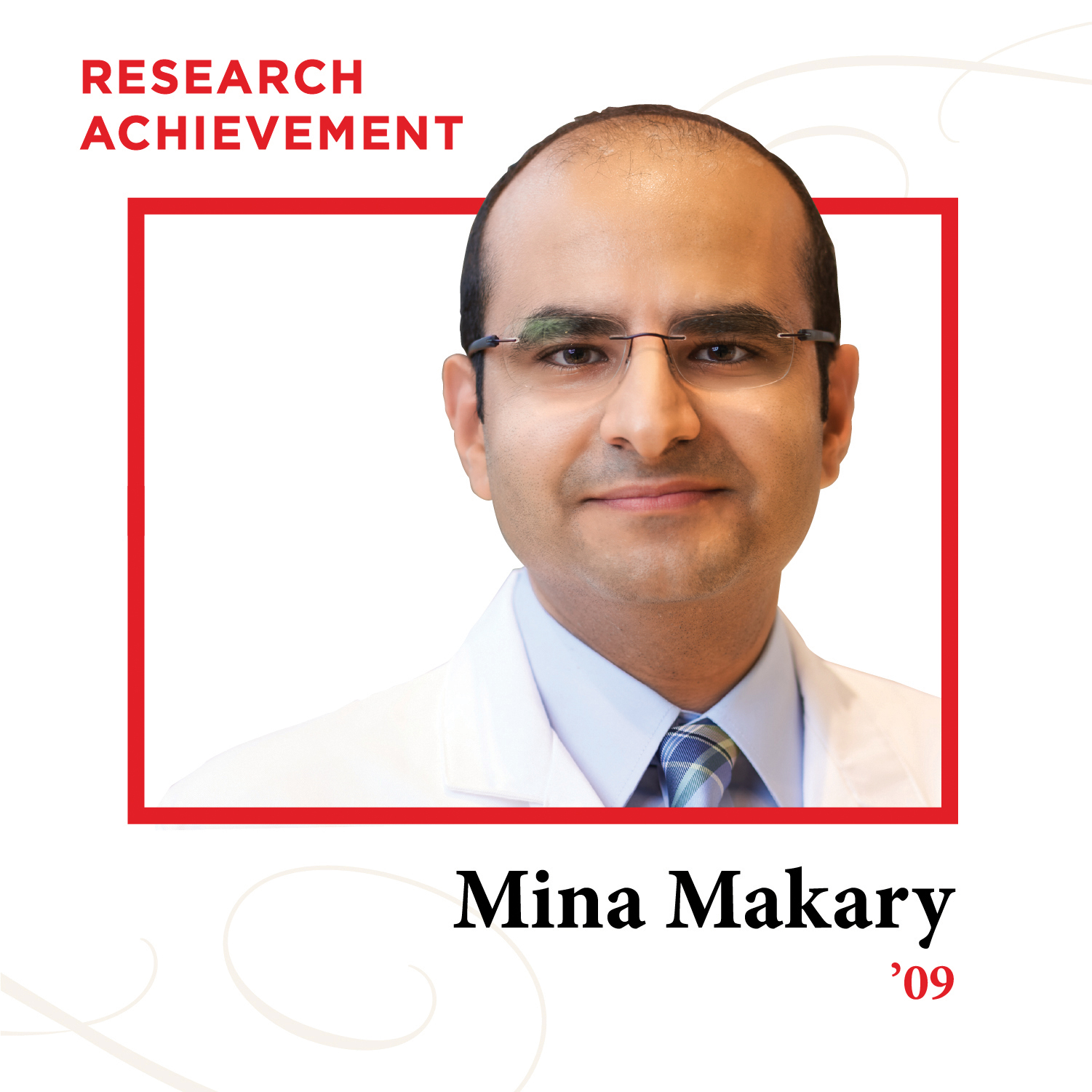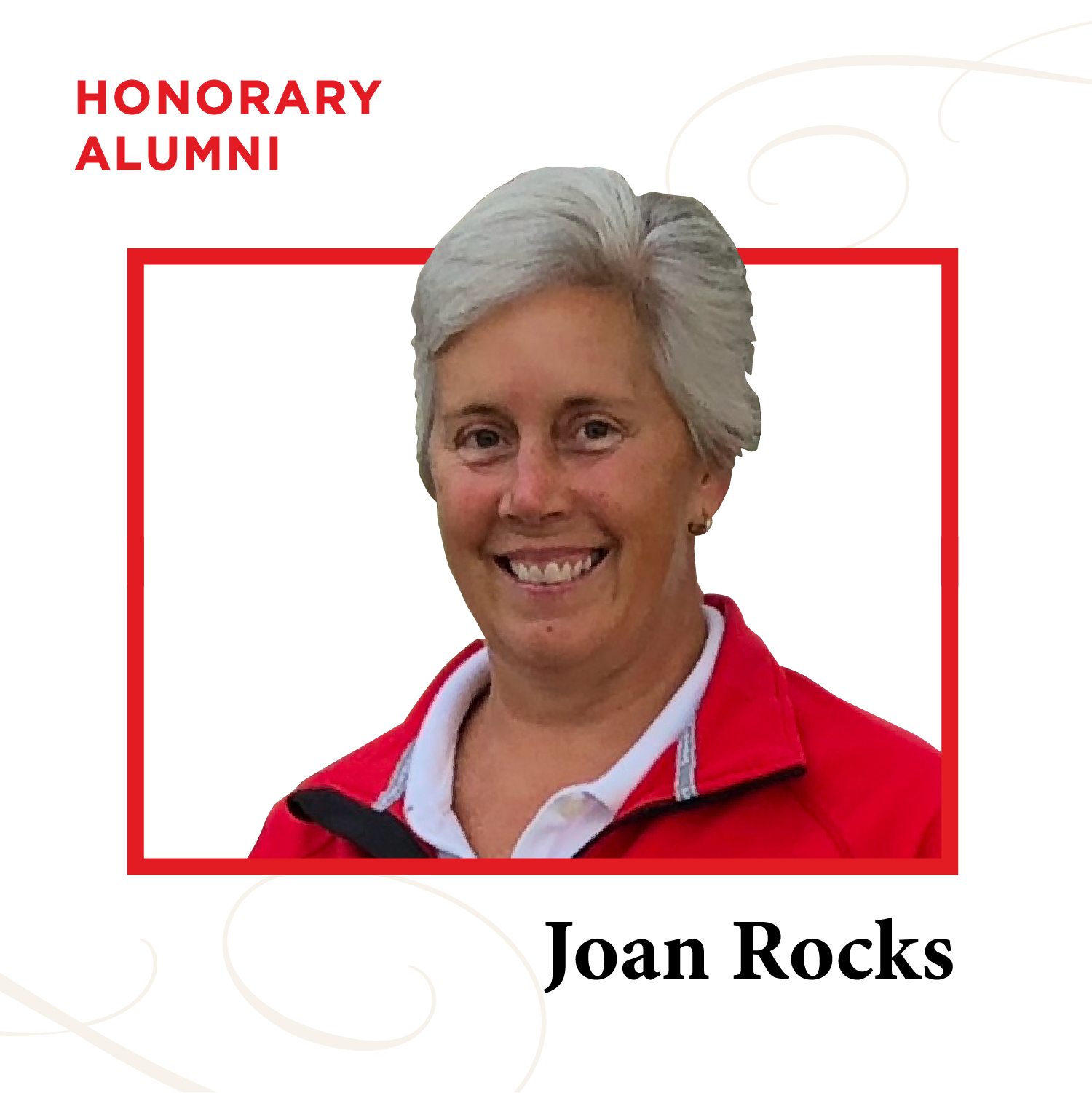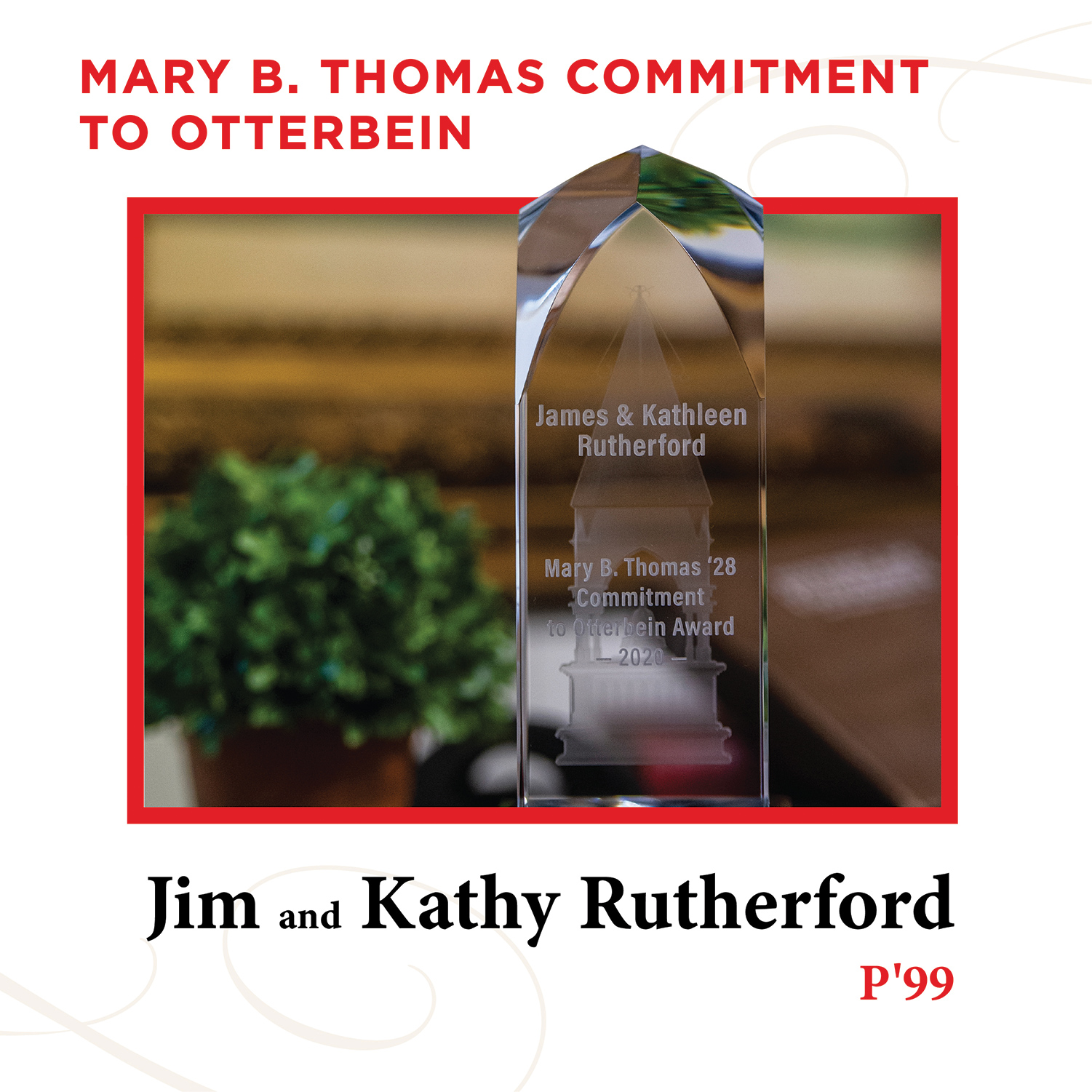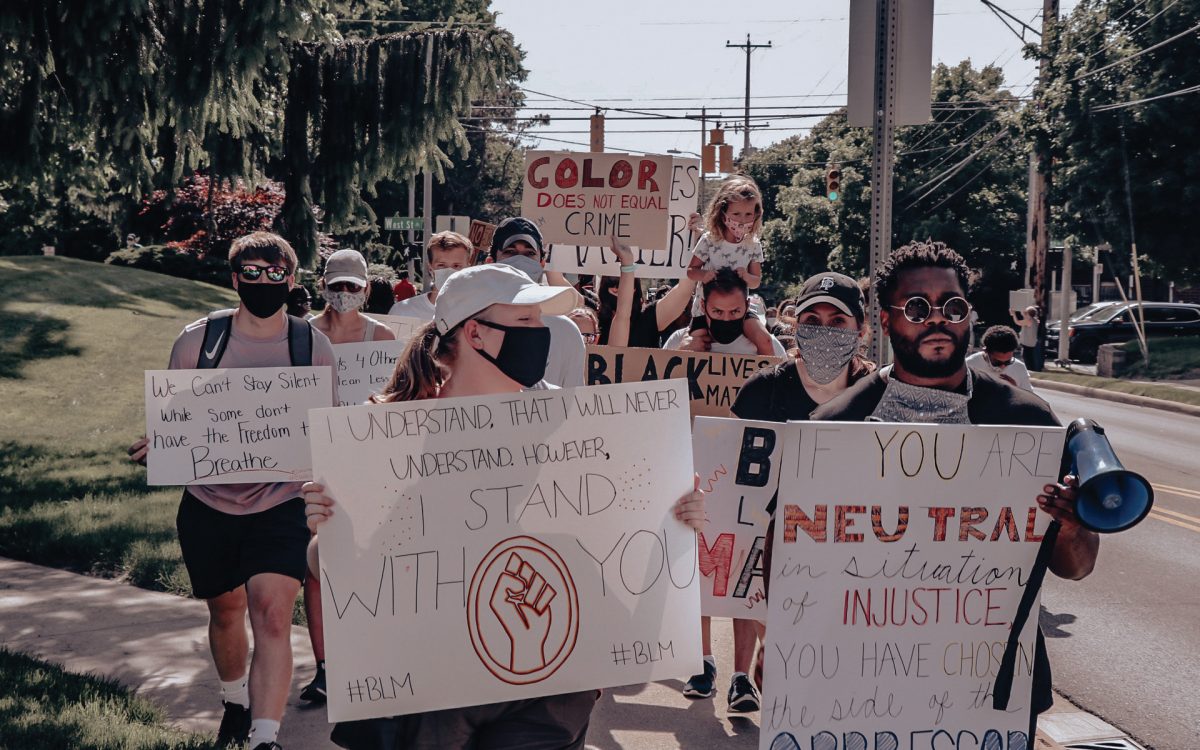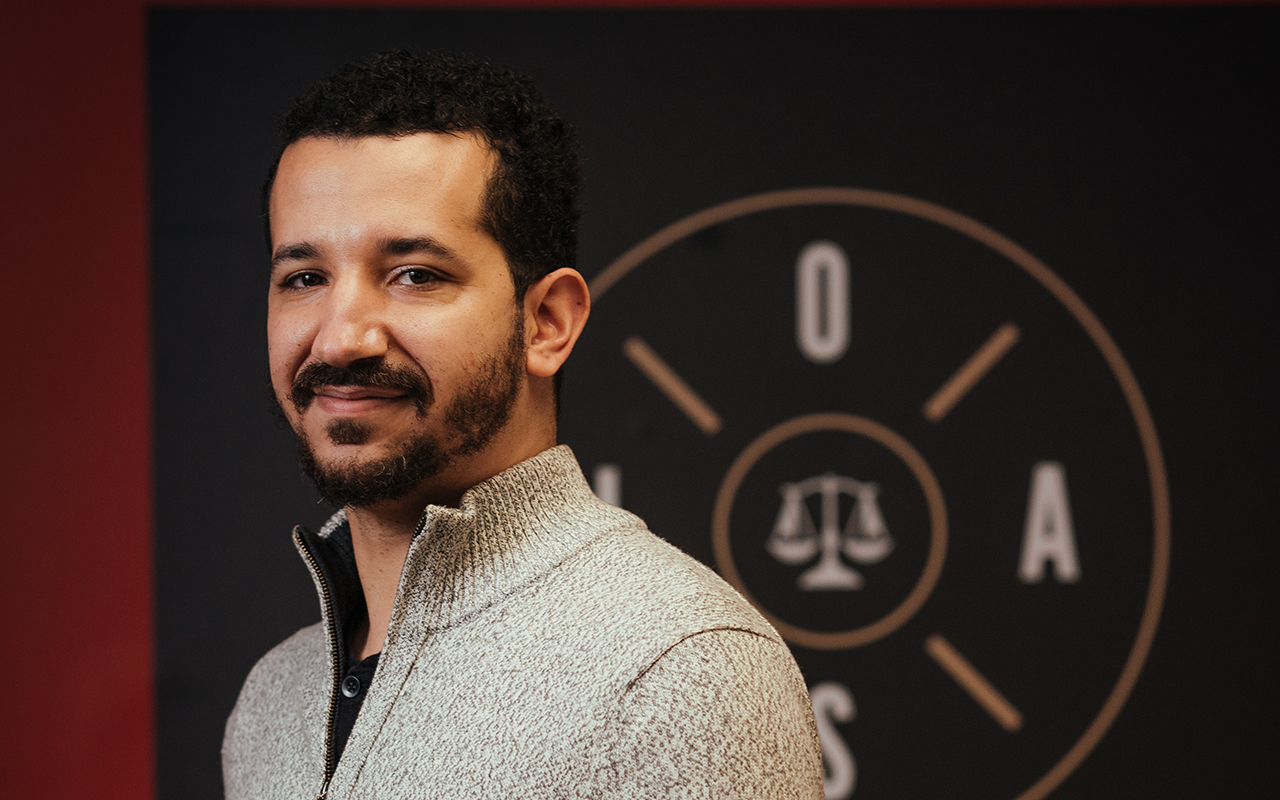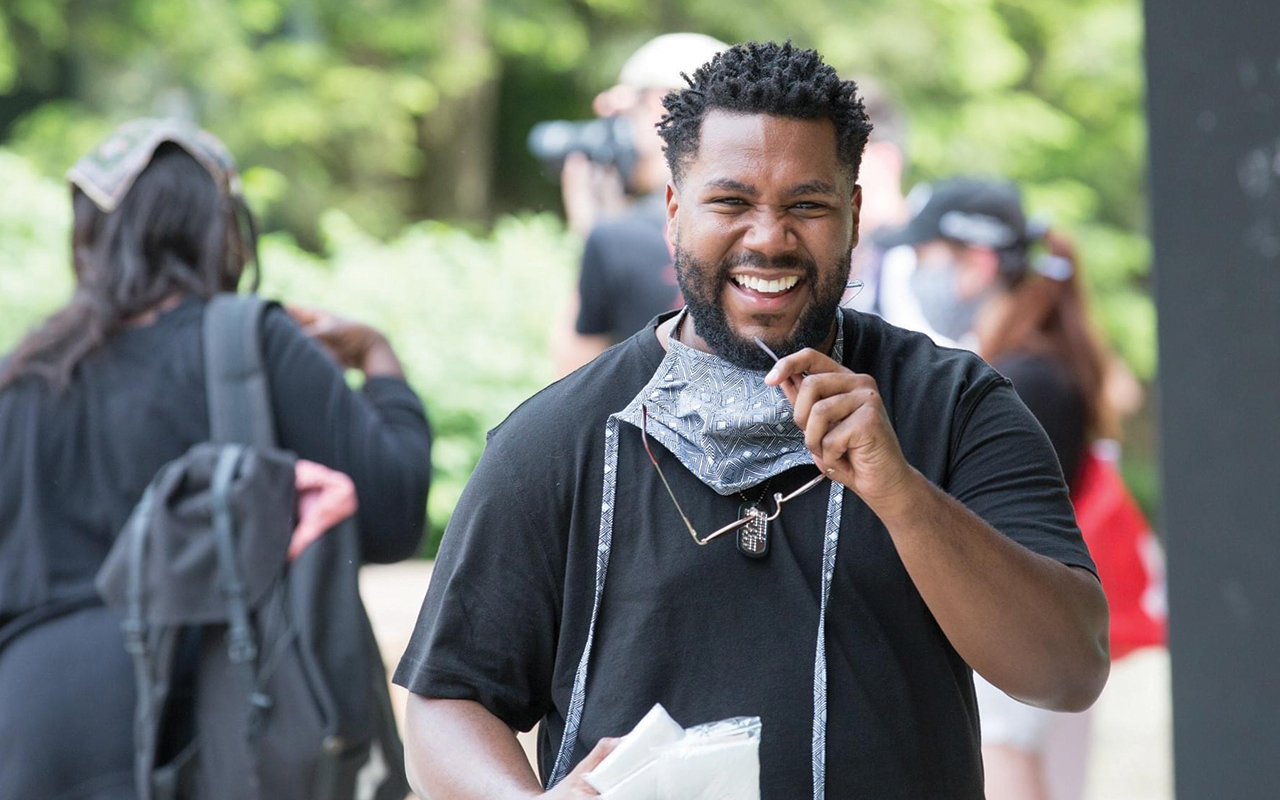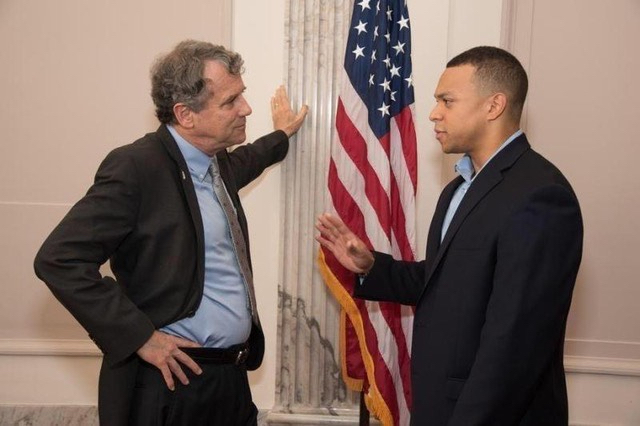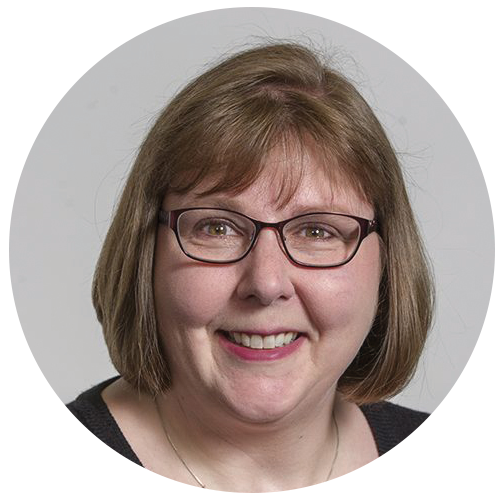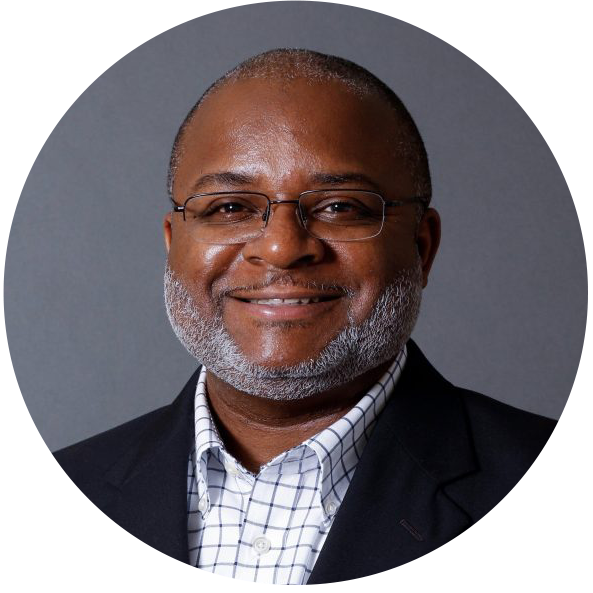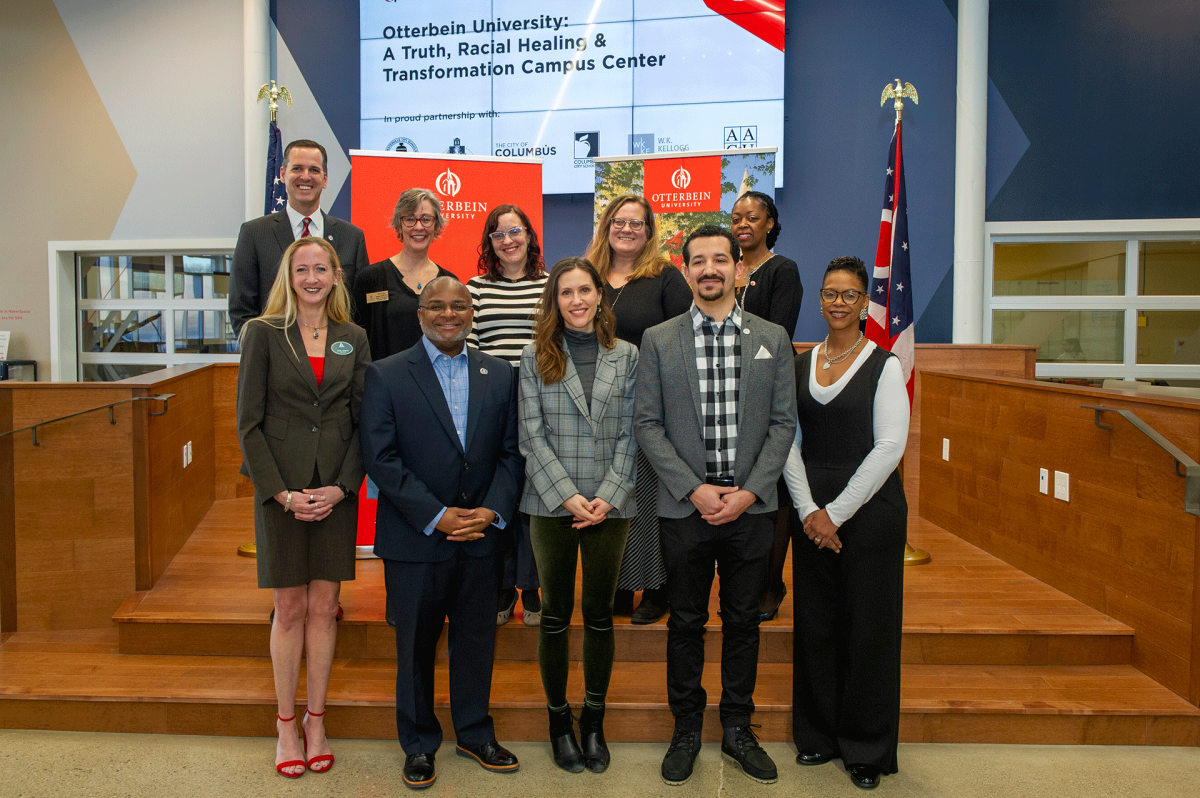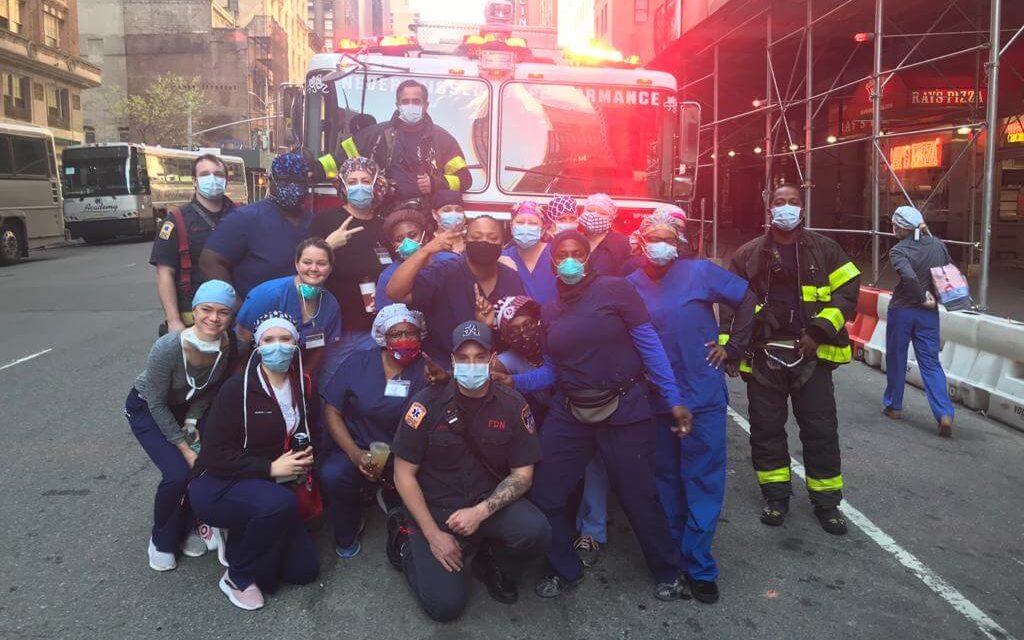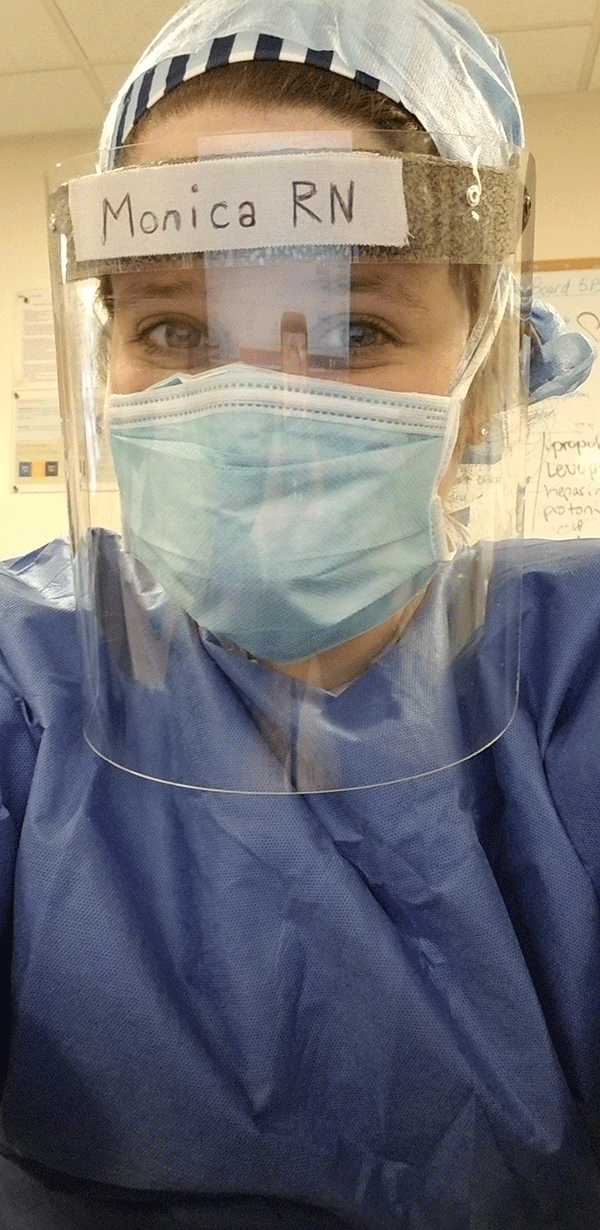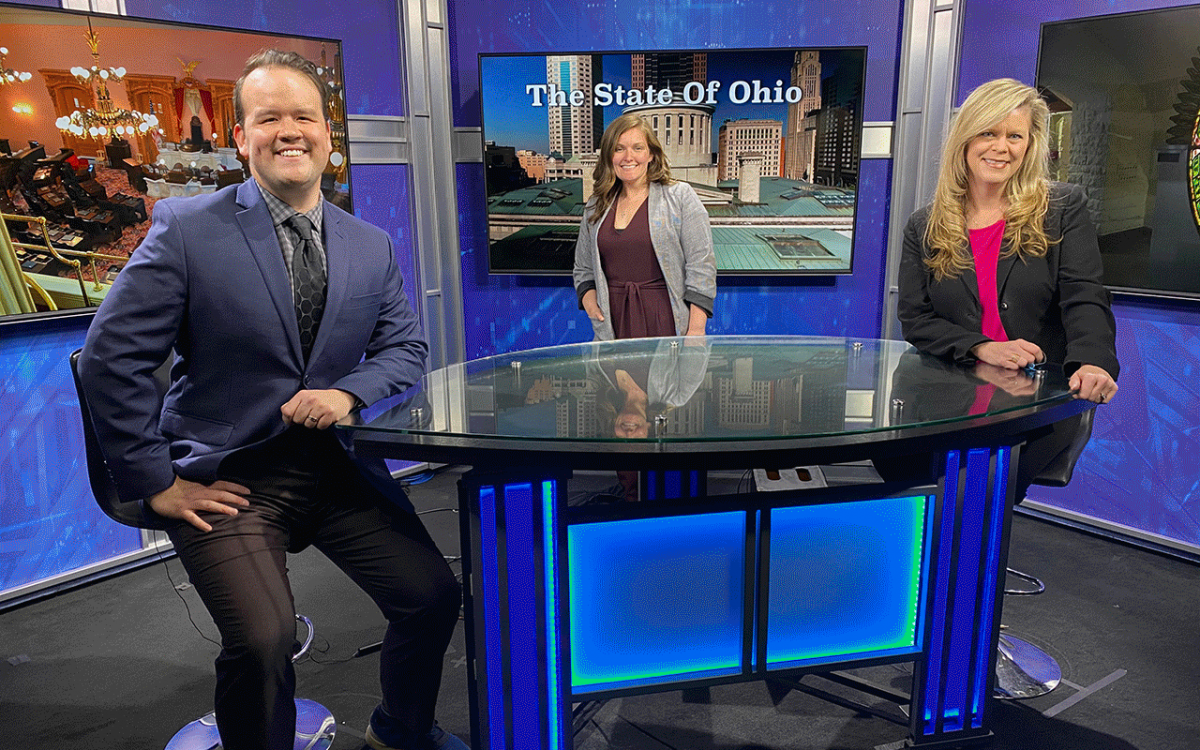Otterbein faculty and administrators have recently received numerous grants from prominent foundations and federal programs to support research, academic studies and community education. Faculty and administrators pursue grants to support the mission of Otterbein, enhance faculty achievement and student learning, and strengthen social justice in the central Ohio community.
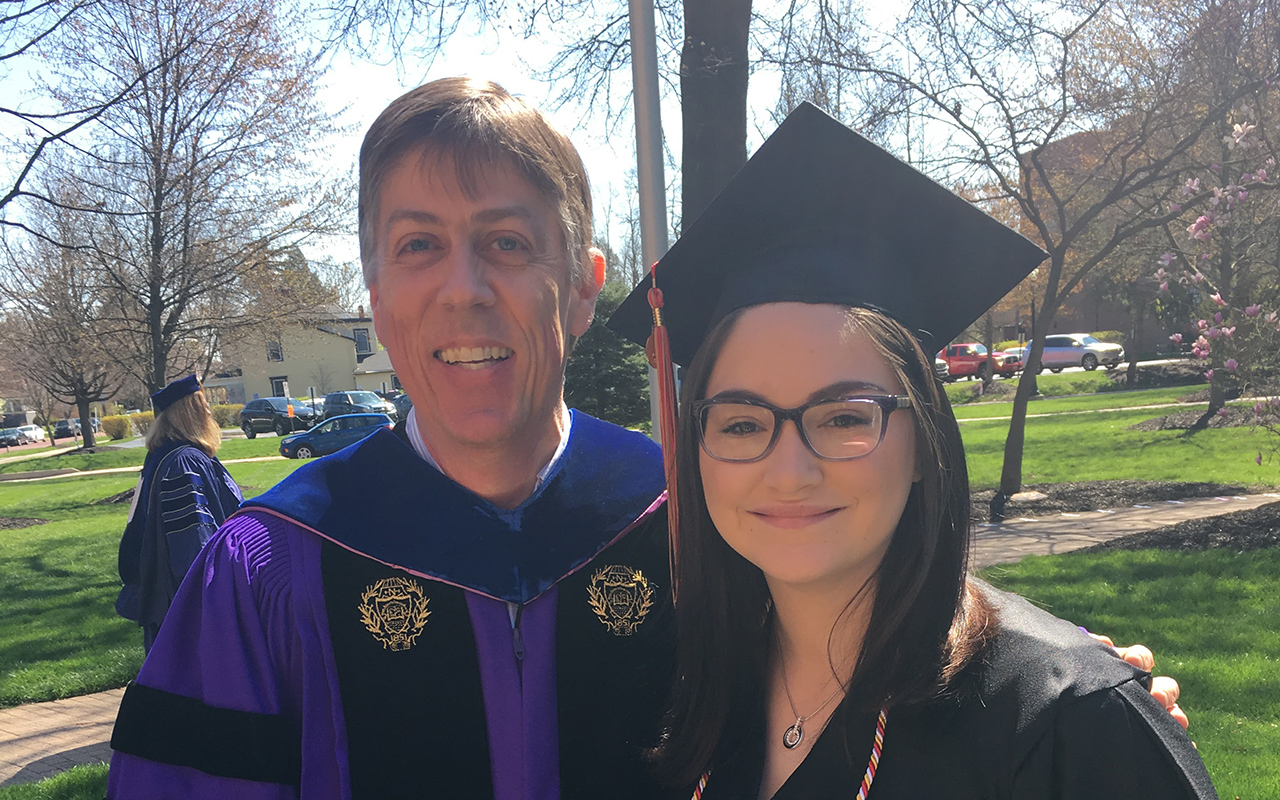
Cardinal Science Scholar Elizabeth Isaac ’19 (Chemistry) with Professor Dean Johnston.
Cardinal Science Scholars: Boosting Students’ Expectations for Success in STEM
Amount
$999,348
over five years
Seventy-two percent of the funds ($720,000) are reserved for student scholarships.
Awarded by
National Science Foundation, Scholarships in Science, Technology, Engineering, and Mathematics (S-STEM) Program
Recipients
Principal Investigator: Dr. Brigitte Ramos (Chemistry)
Dr. Elena Caruthers (Engineering)
Dr. Meredith Meyer (Psychology)
Dr. Joan Esson (Chemistry)
Dr. Uwe Trittman (Physics)
Dr. David Sheridan (Biology and Earth Science)
Sexual Violence Prevention in Central Ohio: Interrupting Sexual Assault, Domestic Violence, Dating Violence, and Stalking on Campus
Amount
$298,658
Awarded by
U.S. Department of Justice, Office on Violence Against Women
Recipients
Project Supervisor: Dr. Kristy McCray (Health & Sports Sciences)
Dean of Students Julie Saker (Student Affairs)
OPD Chief Larry Banaszak
Professor Suzanne Ashworth (English and WGSS)
HR Director Scott Fitzgerald
OTHER NATIONAL, STATE, PRIVATE GRANTS RECEIVED INCLUDE
- Association of American Colleges & Universities (Papa John’s and Newman’s Own), awarded $20,000 for “Truth, Racial Healing and Transformation Campus Center.” Wendy Sherman-Heckler (Academic Affairs).
- National Science Foundation, Division of Physics awarded “RUI: Neutrino Oscillations with DUNE and MicroBooNE” $195,623 through 2023. Nathaniel Tagg (Physics).
- Ohio Department of Higher Education, Human Capital Strategies program, a total of $41,387.50 for “Pathways to Teaching.” Kristin Bourdage applied; Amy McGrath will be project director. Three districts will be involved: Canal Winchester Local Schools, Olentangy Local School District, and Westerville City Schools.
- The Martha Holden Jennings Foundation awarded $35,000 for “Network of Excellent Teaching Hub (NExT Hub): Professional Development in Educational Justice and Equity.” Margaret Koehler (English) and Kristin Bourdage (Education).
